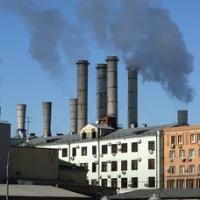(BRUSSELS) – A tentative deal to redesign one of the EUs key climate policies, the Emissions Trading Scheme, was reached by the EU institutions Thursday, but it was not welcomed by environmental groups.
The agreement coincides with the UN Climate Summit COP23 in Bonn, where countries should make good progress towards increasing their 2030 climate pledges, in line with the conclusions of the latest UN Environment Emissions Gap Report.
MEPs and the Estonian presidency of the Council (EU Ministers) agreed to strengthen the EU emissions trading system (EU ETS) to further reduce CO2 emissions and implement the Paris Agreement.
The agreement provides for:
- an increase in the yearly reduction of emission allowances to be auctioned (so-called “linear reduction factor”) by 2.2% from 2021, against the existing 1.74%; this factor will also be kept under review with a view to increasing it further by 2024 at the earliest;
- a doubling of the Market Stability Reserve’s capacity to mop up excess emission allowances on the market: when triggered, it would absorb up to 24% of excess credits in each auctioning year, for the first four years, thus increasing their price and pushing for less emissions.
Two funds to help foster innovation and tackle the transition to a low carbon economy
A modernisation fund will help to upgrade energy systems in lower-income member states. MEPs pushed to tighten the financing rules so that the fund is not used for coal-fired projects, except for district heating in the two poorest member states, provided that they offset the emissions produced by using an equivalent amount of free allowances (granted under a temporary derogation via article 10c of the legislation) for investments not involving solid fossil fuels.
An innovation fund will provide financial support for renewable energy, carbon capture and storage and low-carbon innovation projects.
The deal was not however welcomed by environmental groups. CAN Europe said that “Instead of looking at ways to scale up climate action, the EU puts forward a reform that will keep its carbon market ineffective for another decade and falls dramatically short of what is needed to align it with the Paris Agreement. The EU also allows its flagship climate tool to keep funding coal the dirtiest fossil fuel.”
For WWF, this “inadequate deal, which will pay heavy industry to continue polluting, makes Europe’s Paris Agreement climate commitments look meaningless. It puts huge pressure on EU lawmakers to ensure the the Clean Energy package delivers the missing climate action.
Further information, European Parliament
Post-2020 reform of the EU Emissions Trading System [EU Legislation in Progress]


